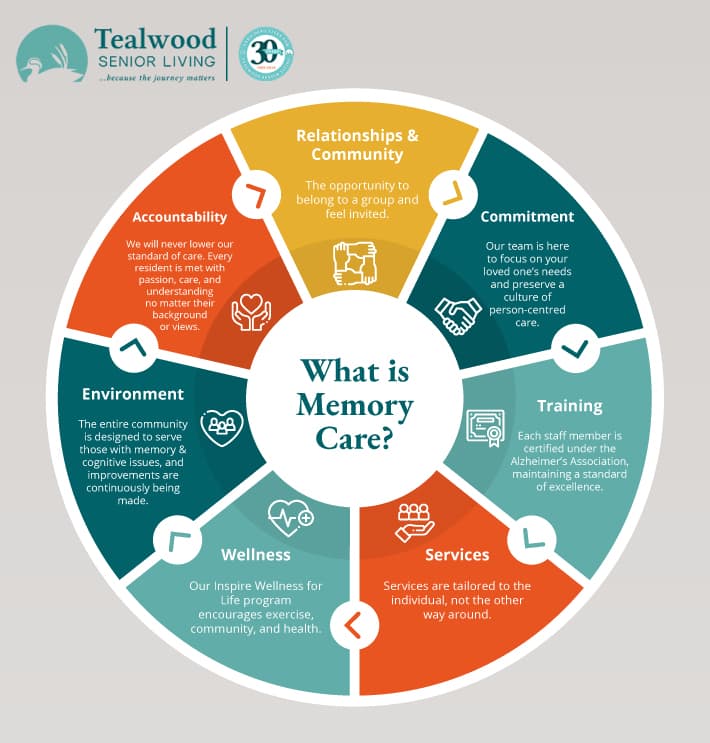Concentrated Memory Support and Care Options with Alzheimers Care Charlotte
Concentrated Memory Support and Care Options with Alzheimers Care Charlotte
Blog Article
Developing a Safe and Supportive Environment for Alzheimer's Care
The creation of a secure and helpful setting for individuals with Alzheimer's is vital in improving their quality of life. This involves not just physical adaptations within the home, such as reducing threats and incorporating acquainted aspects, but also the application of organized regimens and significant tasks that satisfy their cognitive demands. Recognizing the psychological and emotional measurements of treatment can substantially affect their sense of safety and security and connection. Exploring these complex approaches can expose essential insights into efficient caregiving approaches that may change the day-to-day experiences of both caretakers and clients.
Recognizing Alzheimer's Demands
Often, individuals with Alzheimer's illness exhibit a series of demands that need tailored techniques to care. As the problem progresses, cognitive decline shows up in various means, affecting memory, reasoning, and even the capacity to execute everyday activities. Caretakers must recognize these developing demands to provide suitable assistance and make sure a higher high quality of life for those influenced.
One critical aspect of understanding Alzheimer's requirements is identifying the value of routine and experience. People often locate convenience in well established patterns, which can reduce stress and anxiety and confusion. Caregivers ought to make every effort to produce organized everyday timetables that integrate meaningful activities aligned with the individual's interests and abilities.
Furthermore, effective communication is vital. People with Alzheimer's might struggle to share themselves or comprehend complex language. Caretakers should utilize easy, clear language, use non-verbal hints, and method active paying attention to promote understanding and connection.
Caregivers need to encourage engagement in neighborhood activities or family gatherings, promoting a sense of belonging and objective. Understanding these diverse requirements is necessary for creating an encouraging treatment environment.
Creating a Safe Home
Creating a safe home for individuals with Alzheimer's illness is vital to lessening risks and advertising independence. Make sure that paths are well-lit and clear, as proper lighting lowers disorientation and improves flexibility.
Incorporating flexible features is additionally crucial. Set up grab bars in restrooms and near stairways, and think about utilizing non-slip floor coverings in wet areas. Additionally, utilizing contrasting colors for wall surfaces and floors can assist in distinguishing spaces, aiding to reduce complication.
Experience is important for individuals with Alzheimer's. Personalizing the setting with familiar items and photos can enhance a feeling of belonging and security - Alzheimers Care Charlotte. It is additionally helpful to have actually an assigned location for day-to-day tasks, such as analysis or crafting, which can give framework to their day
Lastly, applying a secure outside space enables secure expedition while attaching with nature. By attentively designing the home setting, caregivers can significantly improve the lifestyle for individuals dealing with Alzheimer's illness.
Enhancing Communication Abilities

Non-verbal communication, including faces, motions, and touch, plays an essential role in sharing compassion and understanding. Preserving eye contact and a tranquil demeanor can enhance the comfort degree of the individual, promoting a feeling of security.
In addition, it is vital to practice energetic listening. This entails being completely existing, showing persistence, and allowing the individual to express themselves without disturbance. Repeating might be essential; caretakers should be prepared to take another look at concerns or subjects, as people with click for info Alzheimer's might battle with memory recall.
In addition, making use of aesthetic help or cues, such as photos or acquainted things, can assist in recognition and involvement. Eventually, enhancing communication abilities is regarding constructing depend on and creating a setting where individuals really feel listened to, valued, and understood, therefore enriching their top quality of life.
Motivating Social Communication
Fostering significant social interactions can greatly improve the health of individuals with Alzheimer's illness. Involving with others not just helps battle feelings of seclusion but likewise boosts cognitive feature and emotional health and wellness. Structured social activities, such as group video games, crafts and arts, or music treatment, develop opportunities for citizens to attach with peers and caretakers, which can result in boosted state of mind and reduced stress and anxiety.
Producing a welcoming setting that encourages socialization is essential. This can be accomplished by setting up public rooms that promote communication, such as comfortable seating areas or activity rooms. Furthermore, integrating culturally pertinent and acquainted tasks can motivate and stimulate memories engagement, enabling people with Alzheimer's to feel even more linked to their past experiences.
Moreover, caregivers need to be educated to acknowledge and promote social involvement amongst residents. Straightforward gestures, such as initiating discussion or promoting tiny group discussions, can aid individuals feel valued and consisted of. Frequently scheduled gatherings should be regular yet flexible, suiting differing levels of ability and passion. By focusing on social communication, we can substantially enhance the lives of those living with Alzheimer's, fostering a feeling of neighborhood and belonging.
Supporting Caretaker Wellness

To support caretakers, companies ought to use normal training and educational resources to improve their understanding of Alzheimer's condition and caregiving techniques. Providing access to break treatment solutions permits caretakers to take necessary breaks, lowering stress and fatigue - Alzheimers Care Charlotte. Furthermore, promoting an area via support system can help with emotional sharing and the exchange of functional recommendations amongst caretakers, developing a network of common support
Mental health resources, such as counseling solutions, can additionally be these details vital in attending to the emotional toll caregiving can take. By prioritizing caregiver well-being, we create Web Site an even more lasting caregiving setting that not just profits the caretakers themselves however likewise improves the overall quality of treatment obtained by people with Alzheimer's. Eventually, sustaining caregivers is a necessary part in promoting a effective and compassionate treatment setup.
Verdict
To conclude, the creation of a safe and encouraging environment for people with Alzheimer's is necessary to boosting their high quality of life. By prioritizing safety via thoughtful style, fostering emotional health with familiar elements, and advertising interaction through structured regimens, caregivers can dramatically impact the overall experience of those influenced by this condition. Supporting caretaker wellness is crucial, as it eventually adds to a more reliable and caring treatment environment.
Rep may be necessary; caretakers must be prepared to take another look at inquiries or topics, as people with Alzheimer's might struggle with memory recall.

Report this page